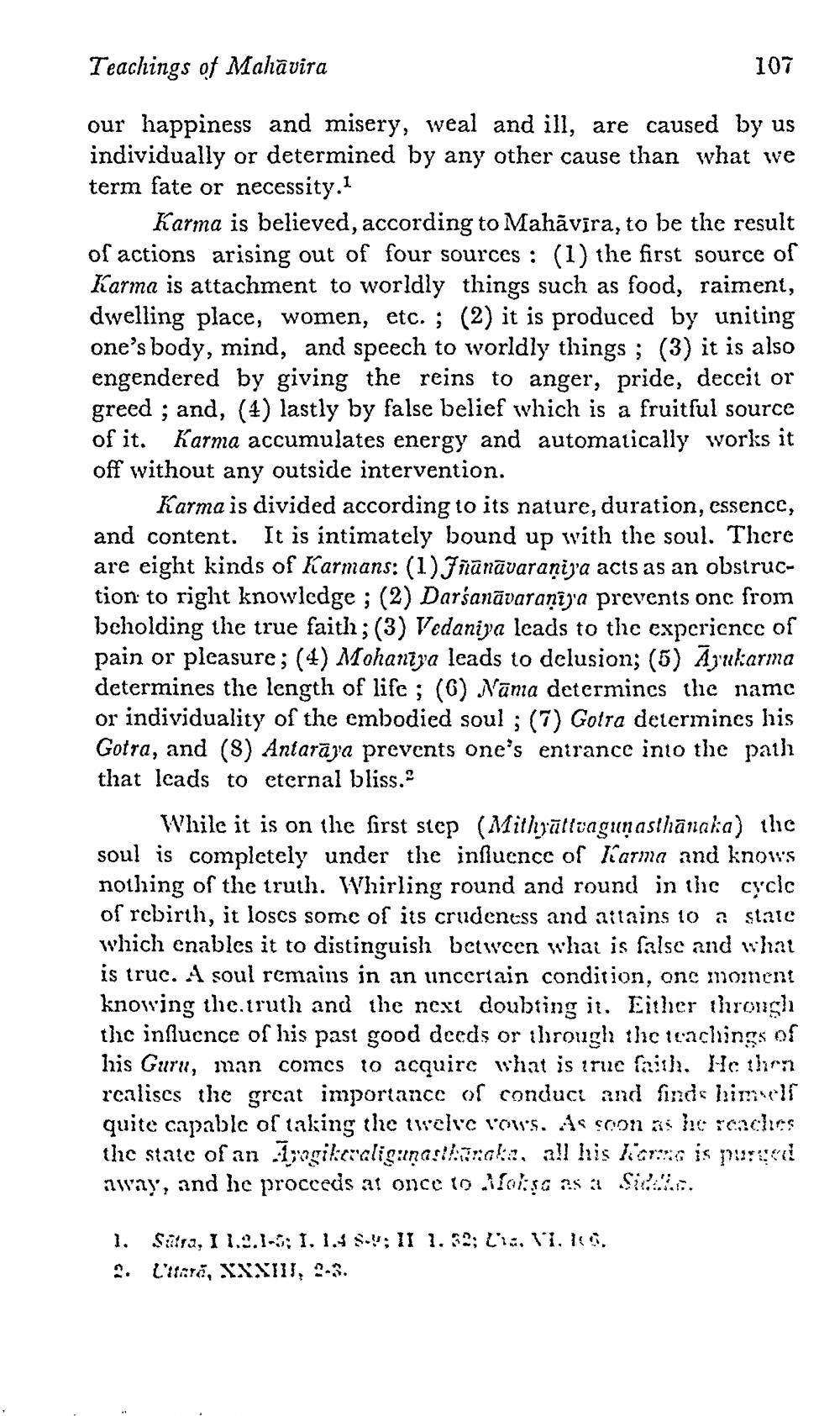________________
Teachings of Mahavira
our happiness and misery, weal and ill, are caused by us individually or determined by any other cause than what we term fate or necessity.1
107
Karma is believed, according to Mahavira, to be the result of actions arising out of four sources: (1) the first source of Karma is attachment to worldly things such as food, raiment, dwelling place, women, etc.; (2) it is produced by uniting one's body, mind, and speech to worldly things; (3) it is also engendered by giving the reins to anger, pride, deceit or greed; and, (4) lastly by false belief which is a fruitful source of it. Karma accumulates energy and automatically works it off without any outside intervention.
Karma is divided according to its nature, duration, essence, and content. It is intimately bound up with the soul. There are eight kinds of Karmans: (1) Jñānāvaraṇīya acts as an obstruction to right knowledge; (2) Darsanavaraniya prevents one from beholding the true faith; (3) Vedaniya leads to the experience of pain or pleasure; (4) Mohaniya leads to delusion; (5) Āpukarma determines the length of life; (6) Nāma determines the name or individuality of the embodied soul; (7) Gotra determines his Gotra, and (8) Antarāya prevents one's entrance into the path that leads to eternal bliss.2
While it is on the first step (Mithyāttvaguṇasthānaka) the soul is completely under the influence of Karma and knows nothing of the truth. Whirling round and round in the cycle of rebirth, it loses some of its crudeness and attains to a state which enables it to distinguish between what is false and what is truc. A soul remains in an uncertain condition, one moment knowing the truth and the next doubting it. Either through the influence of his past good deeds or through the teachings of his Guru, man comes to acquire what is true faith. He then realises the great importance of conduct and finds himself quite capable of taking the twelve vows. As soon as he reaches the state of an Ayagikevaliguṇastkānaka, all his Karma is purged away, and he proceeds at once to Moksa as a Siddha.
1. Sutra, I 1.2.1-5; 1. 1.4 SV; II 1. 32; Ch. VI. 15.
2. Uttara, XXXIII, 2-3.




